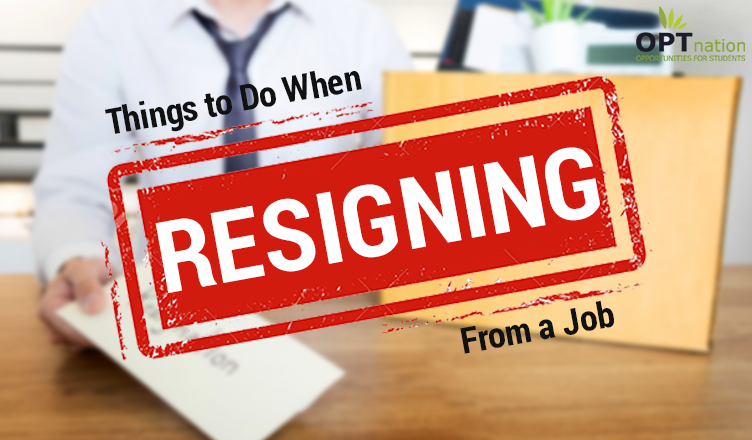For many individuals, resignation is a term synonym to worry. To sort out the final tasks at hand, to prepare yourself for a new environment, and many such new unpredictable elements make humans worry about what, how, when. Everything in life needs planning. Resignation is no different in this case. Plan your resignation well enough that you smoothly transit into your next job. When leaving your job, there are a few important things that you must consider or do for a healthy job switch. And consider these things or steps you do when resigning a job or workplace as your Resignation Checklist. Read the article below to help you ensure the best possible transition.
Make a Resignation Checklist For Things You Should Consider When Leaving a Job
Know Your Next Move
First and foremost, you must have a very good reason when leaving a job. It is imperative on your end to carefully plan your next move. You must have something lined up already, and if not, then you are putting everything at stake. You need to have a clear head on what you will be doing after you leave your job, like what is the start date for your new job? If you have not yet decided on your new job or career, then you shall carefully analyze your financial situation. For instance, how long you can financially survive without a job. In case, you have no clear answers to such questions, then it would be wise not to ditch your current job.
Inform Your Boss
Once you have made up your mind to switch a job, then it is best to inform your boss before formally putting up a resignation letter on his table. It is considered a more reasonable approach before providing written resignation. Ensure that your line manager is the first person in the organization to discuss with, otherwise, you have to be very tactful with the HR team.
You can initiate your discussion about resignation with your boss by expressing that it’s time to move on. Prepare yourself for an open and positive conversation with your boss. Politely explain your point of why you’re leaving your job and what you have planned for your future.
Submit a Formal Letter of Resignation
Now it’s time to submit your written resignation. This means at this stage you will be providing your HR department with official notice that you are leaving your job. 99.99 percent of the organizations require a formal/written notice from the employee (via email or letter). You can find out a number of resignation templates or formats online for both email and letter. Choose a template depending on your nature of the job or the complexity of work.
Writing a resignation letter can be challenging, hence you must understand the basics of writing a well-thought-out resignation letter. It needs to be concise, professional, and courteous. And includes a formal statement & cleat statement, resignation date, position you will be vacating, and resignation timeline. To paint a positive picture, you must pay your gratitude and be proactive in terms of sharing your exit strategy. This way, you can ensure a seamless transition for your employer.
Check on Your Last Paycheck
During your last week of resignation period, you must confirm from your HR team that when can you receive your last paycheck. Note that you cannot receive your last paycheck on the date of your regular salary each month. As per the HR policies of your company, the direct deposit shall be made along with gratuity or provident fund, if any, depending on certain factors. You can expect a direct deposit after your last day of work or after you finish your job.
There are certain laws framed by the state’s labor department that can help you file a complaint against your former employer if you don’t get to receive your last paycheck.
Also, when leaving a job, don’t forget to check on the eligibility of other employee benefits, unused vacation, sick pay, or PTO (Paid time off). Although this varies by the state and the organizations’ policies. But, there are high chances that you are eligible for a lump sum amount.
ALSO READ:
Creating a Job Search Plan to Land a Perfect Job
What is an Exit Interview? Purpose of Exit interviews & Best Practices
Acquire Positive References
Last, but not least, when leaving your current job, you must get the best job references. This can be advantageous from a referral check. You can ask your supervisor, line manager, boss, or coworkers to use them as a reference. You can also get some recommendations from your customers, suppliers, vendors, and other external parties. The concerned person on your CV or profile will be contacted for a referral check. Hence, you can ask a favor from your people at your current job to leave positive feedback or references on the LinkedIn account.
Having a solid background of recommendations on your LinkedIn account has to offer a positive impression and gives your needed leverage in the job market.
Conclusion:
What might seem like a tough close to a job, might be what you need to start a new in your professional life. Instead of being emotional, think reasonably and work on the situation to make it become the best.
The article helps you realize that resignation is just another phase of life for which you need to be prepared. The more you take into account all the needed action, the more you will be able to sync and be better prepared in making an easy jump into your new life.

